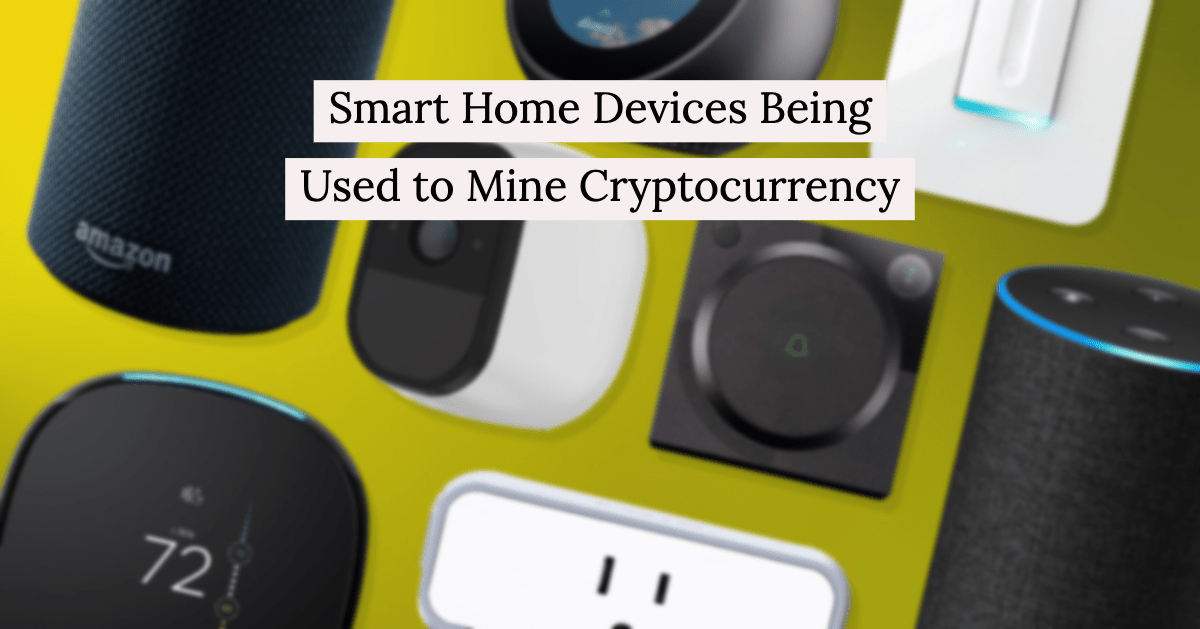Smart Home Devices Being Used to Mine Cryptocurrency

According to The Independent newspaper, smart home devices and other IoT (Internet of Things) objects are falling pretty to cyberattacks, and are being used by hackers to extort money from their owners, mine cryptocurrencies, and create networks of smart devices for illicit purposes.
The worrying information comes from Kaspersky, which is one of the world’s biggest cybersecurity companies, and according to the firm’s findings, attacks on IoT devices are on the rise.
According to another award-winning antivirus and internet security solutions company, ESET, cryptocurrency mining and cryptojacking will continue to grow in 2019 as attackers increasingly target home assistants and smart devices to build cryptomining farms.
The latest concerns for abuse of IoT enabled devices are shared by the Managing Director of Elite Risk Acceptances, Christelle Colman, who says that while smart devices can offer users increased levels of convenience in their everyday lives, the devices can also lead to “new insurance challenges” due to their weak security.
IoT devices range from smart watches, vehicle sensors, home security systems to smart home appliances such as fridges, and they work by continually collecting and exchanging data via the Internet. Many of these devices are using first generation technology and have started to form a part of everyday life for many people in the UK, the richer of whom (who are often referred to as the high-net-worth market) often install high-tech security systems that allow for remote monitoring of their homes.
Such systems and devices are giving ransomware attackers any way to blackmail their victims for cash by, for example, shutting down home security systems while the owners are not in residence until a ransom is paid.
But, according to Elite Risk Acceptance’s Christelle Colman, it’s more common for cyber attacks on privately-owned smart devices to involved taking control of the equipment to let the hacker mine cryptocurrencies and create illicit networks.
Such hacks not only raise security concerns both for the user and insurance companies, but they can also have other impacts such as increased energy consumption and shortened product lives.
However, users of IoT devices should perhaps be more worried about the safety risks that are potentially imposed by cyber attacks. For example, many home appliances and security systems that are IoT enabled collect enormous amounts of personal information about their users’ daily routines and personal preferences. Such sensitive data has the potential to allow criminals to burgle owners’ homes by predicting when they are likely to be away or being able to access their current location.
In the case of home contents insurance policies, Christelle Colman says that insurers could become suspicious of claims pertaining to burglaries where the intruders have an obvious knowledge of how to deactivate security cameras and systems or the best places to gain entry to the property.
Norton, part of the Symantec Corporation, advises IoT enabled device users to take as many precautionary measures as possible to limit the likelihood of hacking. For example, avoiding public Wi-Fi networks, using two-step authentication, applying software updates in a timely fashion, and using strong passwords can all help to minimise the risks.
By Laura Kilby
Sources:
https://www.iol.co.za/personal-finance/investments/will-our-homes-become-too-smart-for-us-20542870

